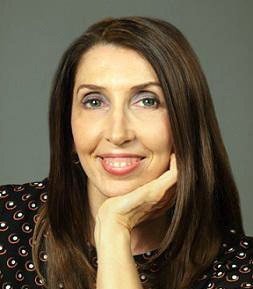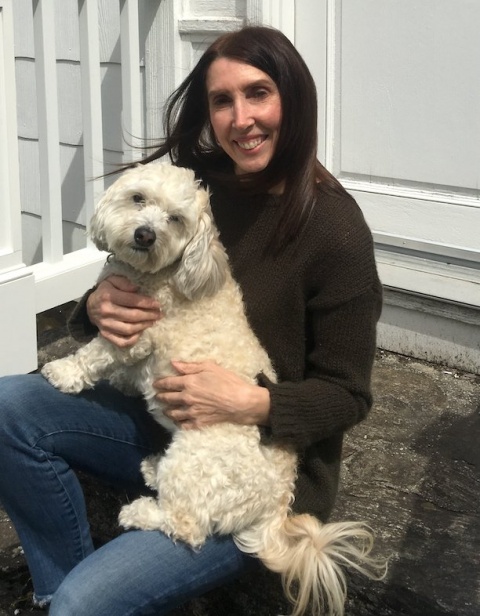Columbia College | Columbia University in the City of New York
Madeleine Dobie

Madeleine Dobie gets why everyone wants to read The Plague right now. Camus’s novel is “an incredible account” of an epidemic in the French-Algerian city of Oran; but Dobie, the chair and director of graduate studies of the Department of French, whose teaching and research areas include colonialism and postcolonial literature, offers some alternative insights. “It’s much harder now to overlook the ways Camus portrays Muslim Algerians, and not to notice that the disease only seems to concern the white inhabitants,” she says. “We can extend that to thinking about questions about inequality and invisibility in public health in our own moment here.”
Dobie is a professor of Francophone literature — French texts from countries other than France, including colonies or former colonies in North Africa, the Middle East and the Caribbean. She is also co-director of the Columbia Global Centers’s eight-week summer program for undergraduate and graduate students, “Amman and Tunis: Middle Eastern and North African Studies,” which pairs intensive Arabic language study with a cultural and historical seminar.
“My interests have always tended toward the colonial,” says Dobie, who teaches and writes about the cultural dimensions of migration and diaspora, and about 18th-century French culture, particularly with regard to the history of slavery. “I’m drawn to the question of French outside of France, and its intersection with other languages and other cultural traditions.”
Dobie admits that her academic and intellectual path has been “rather meandering.” As a teenager in the United Kingdom she was fascinated with the Arabic-speaking world, and began a B.A. at Oxford in Arabic and Islamic history. She changed course and graduated with a degree in philosophy and modern languages in 1989, then earned a Ph.D. in French from Yale in 1994. “Though it sounds disparate, all of these different strands have come together in my research and my teaching,” she says. “It’s interesting how some things you do can turn out to be important later on, even if at the time you don’t think you’re continuing down that path. I think we see that a lot in students, and it’s especially true of foreign language study.”
Dobie joined the Columbia faculty in 2002, after an assistant professorship at Tulane. “At that time Francophone literature was a marginal field of French studies,” she says. “What’s been extraordinary over the last 17 years is to see a real transformation of our field and of my department. Columbia has really become a leading center of Francophone studies; canonical French literature is now being taught among new classics by writers from Africa, the Caribbean and other regions.”
When asked what she enjoys most about teaching, Dobie says she just really likes students. “I’m interested in them — they’re young people, they’re at the start of something, and that’s very powerful. I enjoy being part of the discovery of ideas, showing them works of literature that are going to move and inspire them. It’s interesting to see what lands. It’s fascinating to watch them develop and emerge as more self-assured thinkers and writers — that’s something that’s heartening as a teacher.”
Dobie was on sabbatical last year, working on a book about contemporary Algeria, After Violence, Politics Memory and the Algerian New Wave, in which she tries to move beyond the tendency to represent Algeria as a country defined by the memory of violence. “I try to direct attention toward recent achievements and initiatives in the arts and literature that have unfolded over the last 20 years,” she says. “I’m interested in the context in which works are being produced and received. A whole cultural milieu is being refashioned.”
She is also involved in an international collective project creating a three-volume comparative history of slavery. Dobie’s part is “Slavery, Literature and the Emotions,” which considers different literary and film representations. She has especially enjoyed collaborating with a cohort in Denmark; the group had several international in-person workshops, but has had to connect virtually since the start of COVID-19 quarantines. “We’re all learning a lot about what we can and can’t achieve right now,” she says.

Dobie with Finn
Courtesy of Madeleine Dobie
In the immediate future, Dobie says she and a historian colleague have decided to teach a new class on pandemics in French and Francophone literature and history this fall. “We’ve been sending a syllabus that we plucked out of the air back and forth between us,” she says. “I think you have to seize the moment of reflection.”
Issue Contents
Published three times a year by Columbia College for alumni, students, faculty, parents and friends.
Columbia Alumni Center
622 W. 113th St., MC 4530, 6th Fl.
New York, NY 10025
212-851-7852
cct@columbia.edu
Columbia Alumni Center
622 W. 113th St., MC 4530, 4th Fl.
New York, NY 10025
212-851-7488
ccalumni@columbia.edu

